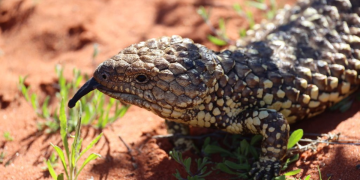From barbecues and campfires to road trip safety, here’s what’s in and out this Fire Danger Season – plus a quiz to test your fire season smarts.
Summer in South Australia means beach days, road trips, and weekend getaways with mates.
But it also means Fire Danger Season is here – when dry grass, hot winds and bad timing can turn a simple drive or camping trip into something far riskier.
Even if you’re not in a high-risk area at home, chances are your holiday plans will take you through one. Fires can move fast, roads can close suddenly, and the safest option is always to plan ahead – before the thermometer spikes and the alerts start rolling in.
Keep reading – and take the quiz at the end – to find out what’s allowed, what’s off-limits and how to stay safe on the road this summer.
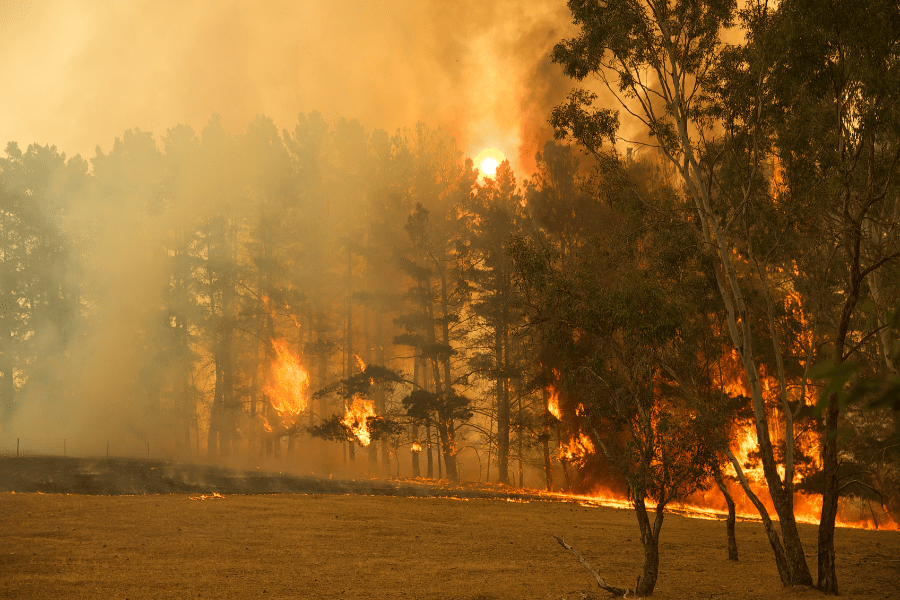
What’s allowed (and what’s not)
Barbecues
Gas and electric barbecues are fine to use during Fire Danger Season – just make sure there’s a cleared space of at least four metres around them, someone responsible is present at all times, and you’ve got a hose, extinguisher or water supply close by.
On Total Fire Ban days, when the weather is hot, dry and windy, no fires can be lit in the open air and extra restrictions apply to activities that could start a fire. The CFS declares these days based on forecast conditions, and they’re listed every afternoon on the CFS website, Alert SA app and ABC Radio.
You can still use a gas or electric barbecue on these days, but only if it’s within 15 metres of a domestic or commercial building, or on a coastal foreshore.
Solid-fuel barbecues and campfires (like those using wood, charcoal or heat beads) are not allowed on a Total Fire Ban day.
During Fire Danger Season, they’re only allowed if:
- The fire is in a space no more than one metre wide and one metre high;
- There’s at least four metres of clear ground around it;
- You have a water supply or extinguisher nearby; and
- A responsible person stays within sight and can put it out if needed.
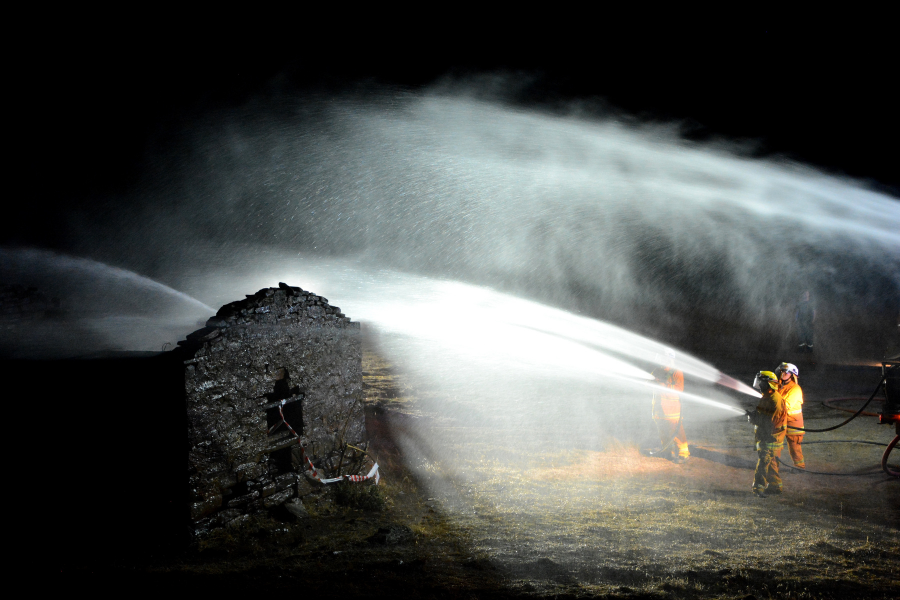
Tools and machinery
You can use chainsaws, mowers, brushcutters, and other mechanical tools during Fire Danger Season, as long as:
- The area around the work is clear of dry grass;
- You have a water source (hose or extinguisher) close by; and
- The equipment has a spark arrester fitted if required.
If you’re doing hot work like grinding, welding or cutting, you must:
- Clear at least ten metres around your work area;
- Keep a water supply or extinguisher nearby; and
- Stop immediately if the conditions get too risky (hot, dry, windy).
On Total Fire Ban days, no hot work (including welding, grinding or cutting) can be carried out outdoors without a Schedule 10 permit from your local council.
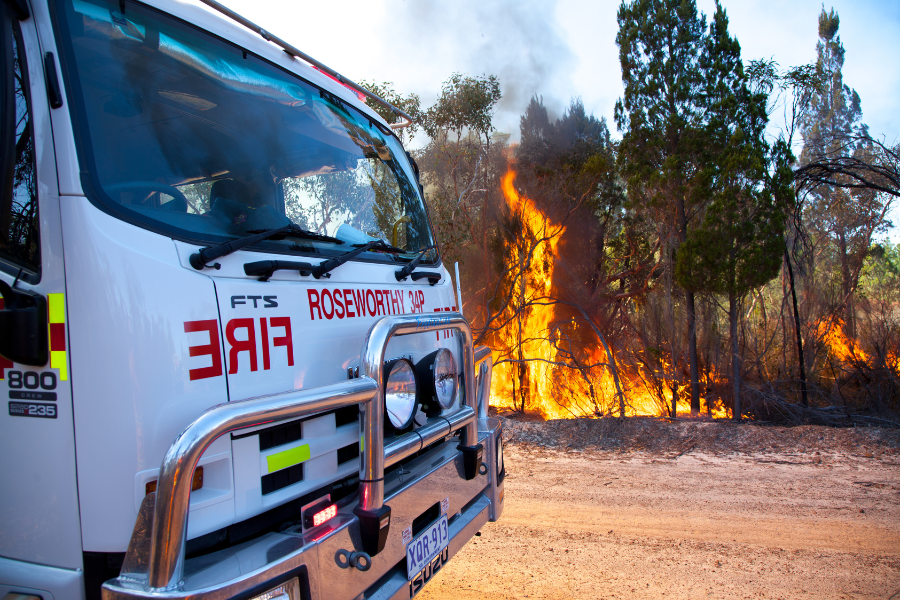
Fireworks and burning off
Private fireworks are banned year-round without a licensed pyrotechnician and written permits.
Burning off vegetation or rubbish is also prohibited during Fire Danger Season unless you have a permit from your local council.
National Parks and reserves
Many National Park and forest reserves introduce restrictions or full bans once Fire Danger Season starts. Always check the CFS website, with your local council or National Parks and Wildlife Service SA before lighting any fire, using a solid-fuel cooker, or camping overnight.
Got more questions about what you can and can’t do during Fire Danger Season? Head here for all the answers.
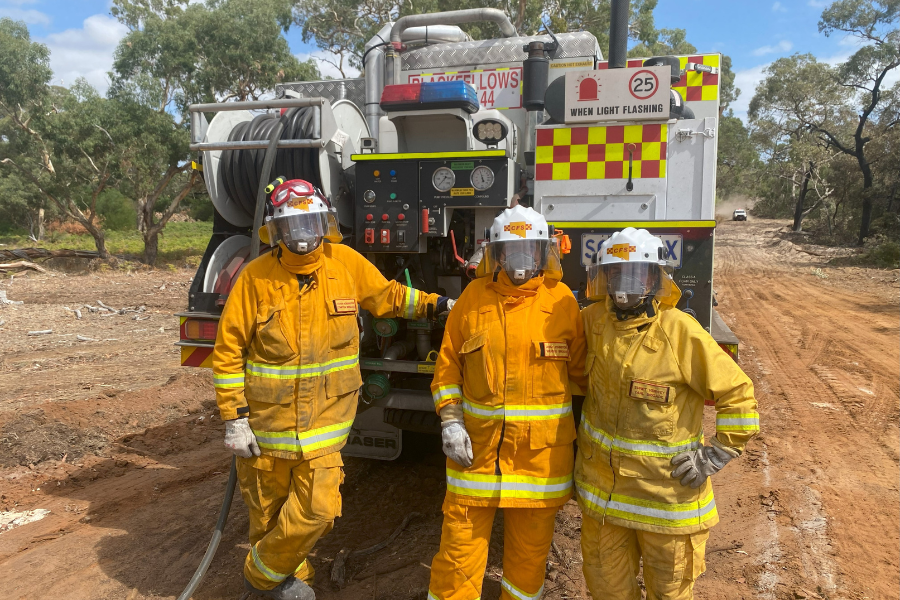
Understanding Fire Danger Ratings
Sure you’ve heard of the Australian Fire Danger Rating System. But do you actually know what it means?
Here’s what you need to remember: The day’s Fire Danger Rating tells you how bad a fire could be if one broke out – not how likely a fire is to start. Think of it as your simplified summer survival tool.
The national system has four levels:
- Moderate: Plan and prepare. Stay alert and ready to act.
- High: Be ready to act. Fires could be dangerous.
- Extreme: Take action now. Fires will spread quickly and be very dangerous.
- Catastrophic: For your safety, leave high-risk areas the night before or early in the day. No property is worth a life.
You’ll see these ratings on roadside signs, in weather reports and on the CFS website – so make checking them part of your daily routine, especially before travelling.
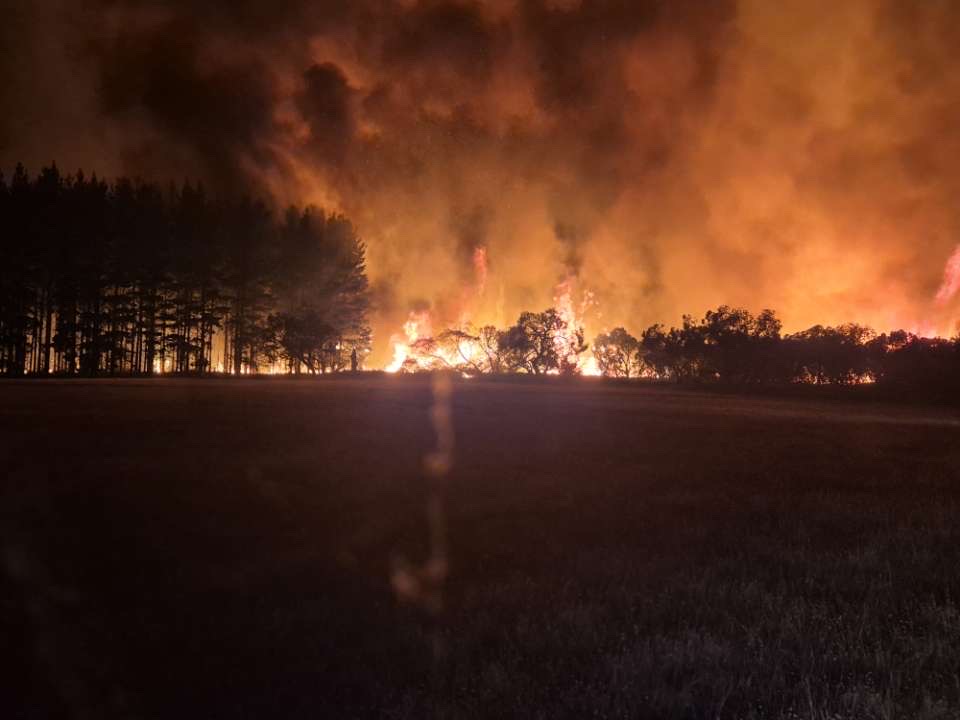
Stay informed (and don’t rely on one source)
The easiest way to stay up to date is the Alert SA app. It gives you live updates from the CFS, SES and MFS, including bushfires, floods, storms and road closures.
You can set up to ten “watch zones” – for your home, work, school, or wherever you’re travelling – and the app will ping you if there’s a threat nearby.
But don’t stop there. Always use multiple sources, because mobile networks and power can fail during emergencies. Keep an ear on ABC Radio, check the CFS website, and follow the CFS social channels for updates.
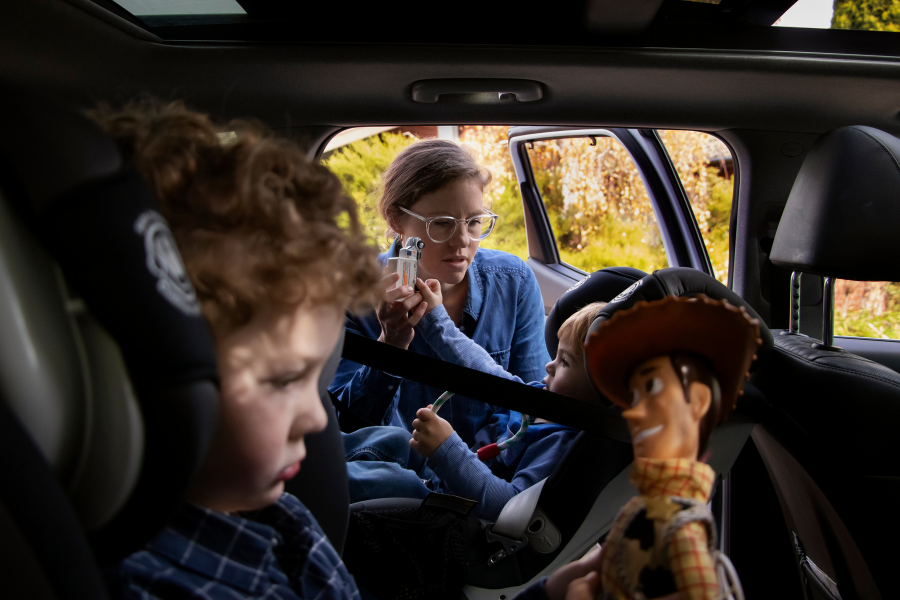
Make sure your household’s ready
Every household in a bushfire-risk area – which is most of South Australia – needs a Bushfire Survival Plan. It only takes five minutes to make one online.
Your plan should cover:
- Where you’ll go if a fire starts
- How you’ll get there (and who’s driving)
- What to do with pets and livestock
- What you’ll pack in your emergency kit (important documents, medications, clothes, food, water and a radio)
It’s also worth doing a quick safety audit and clean up around your home – a well-prepared home is more likely to survive a bushfire. Things you can do include: clean gutters, clear dry leaves, and move firewood and rubbish away from walls and fences.
And yes – talk to your neighbours. Knowing who’s around and how to help each other really can save lives.
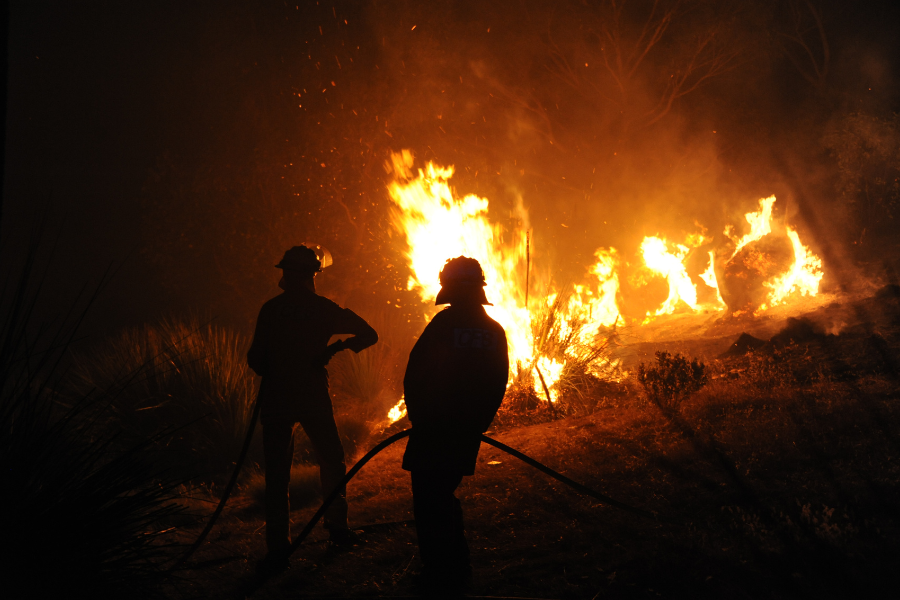
Travel smart this summer
Heading away for the holidays? Make sure your bushfire plan doesn’t end at your driveway.
Before you travel, check:
- The Fire Danger Rating for where you’re going (and everywhere along the route)
- Whether a Total Fire Ban is in place
- The location of nearby Bushfire Safer Places
If the rating is Catastrophic, the safest option is to reschedule or leave early. Fires move faster than you think, and roads can close without warning.
Pack a few extras for the car: water, woollen blankets, a battery-powered radio, sturdy shoes, and a printed map in case GPS drops out. And remember – if you ever see smoke or fire ahead, don’t drive into it. Turn around and head for the nearest town or safe area.
Want an easy hack to be bushfire prepared before heading off? The CFS have got you covered with their 2-minute online traveller tool.
Ready to test what you’ve learned? Take the quiz below and see how fire-safe your summer really is.



